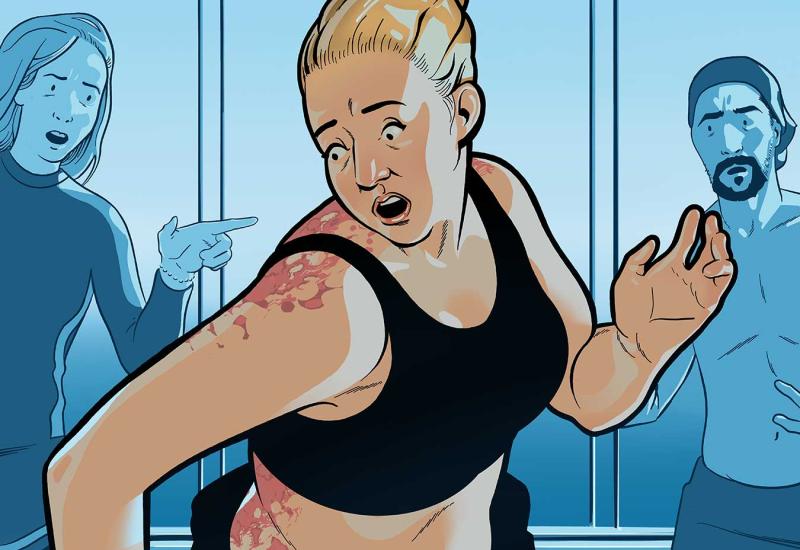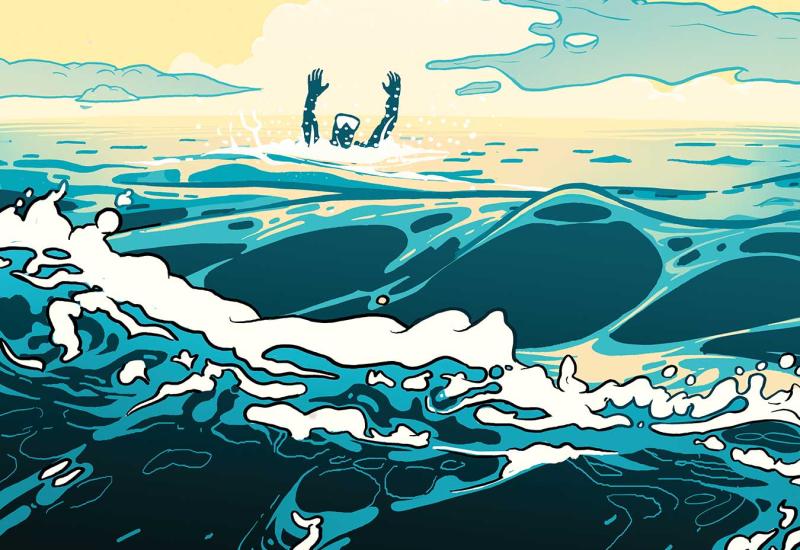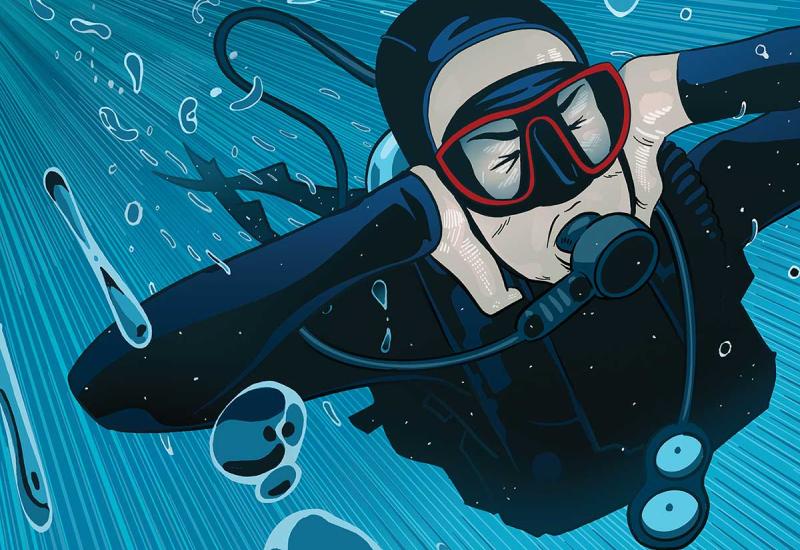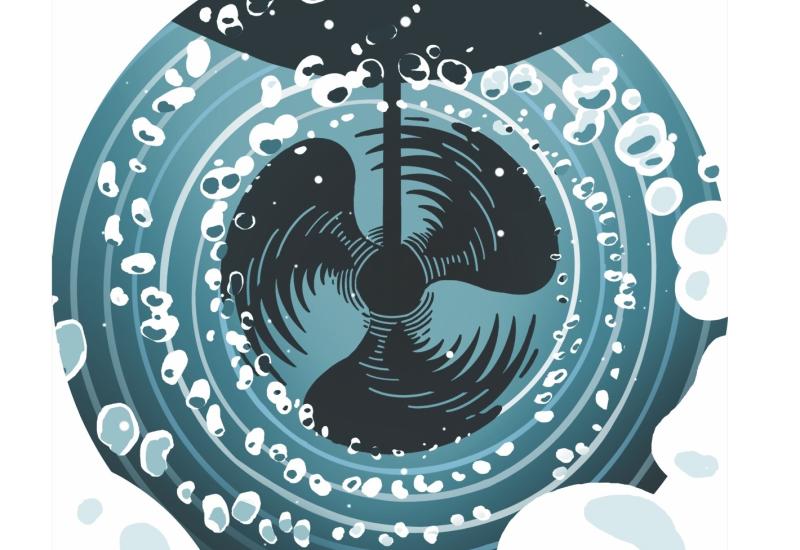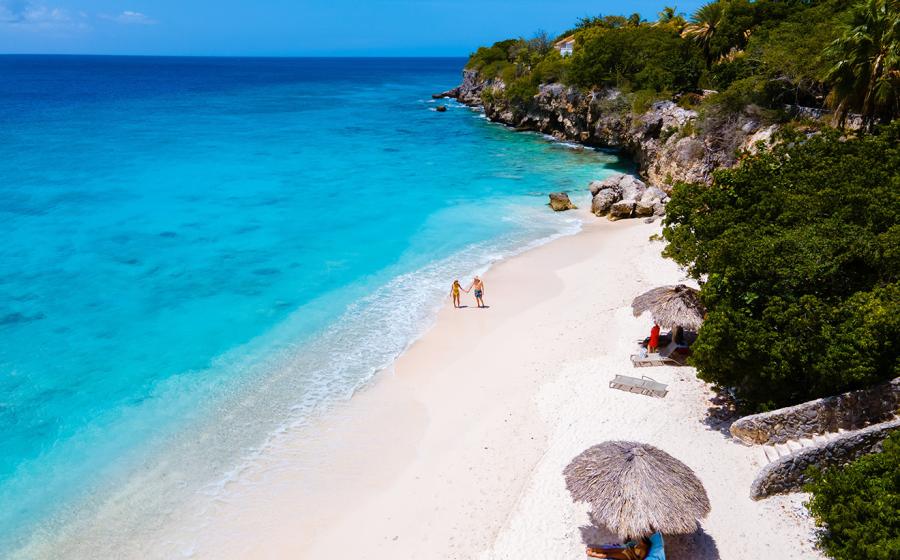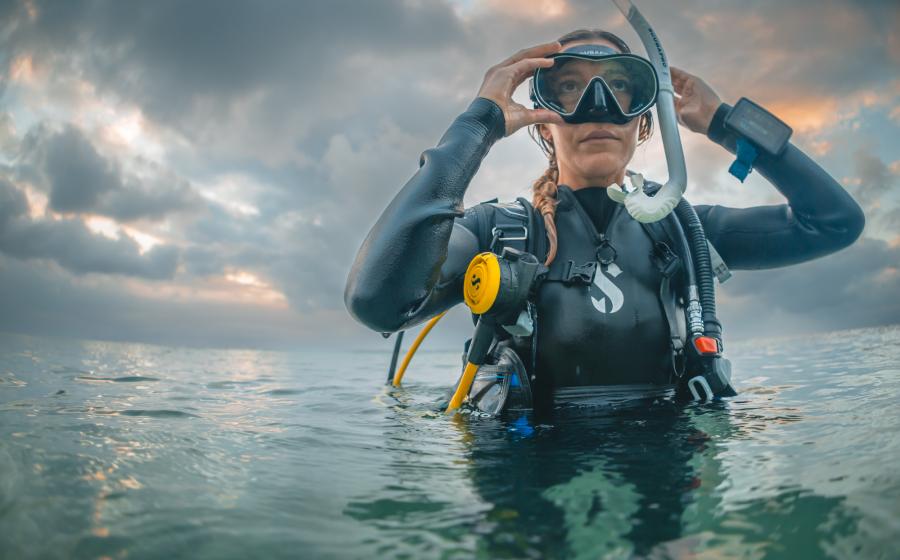Out of Practice, Out of Luck

Lessons for Life: Out of Practice, Out of Luck
Shutterstock
The sport of diving is filled with rules. As in many other activities, the most important ones result from plain common sense. All too frequently, experienced divers allow knowledge and ego to overtake common sense. Take the case of Jill.
Jill was an open-water instructor who had taught dozens of students over her five-year diving career. When Jill discovered she was pregnant, she was overjoyed and readily accepted the fact that she would have to take some time off from diving. After having her baby, it was nearly two years before Jill decided to return to diving. On a cool Saturday in March, Jill went to a local dive site with a group of former students for a short diving excursion. Jill recognized that her lack of physical activity over the preceding months left her in poor physical condition. As an instructor, she should have realized that her water skills were rusty as well. In spite of these factors, Jill entered the gentle surf and cool waters for her first dive since giving birth.
The Dive Site
Located about 60 yards offshore in 60 feet of 58-degree water, the site included a rock ledge and a debris field on the bottom believed to be the site of an unnamed shipwreck. This site was popular with local divers thanks to the variety and quantity of marine life populating the rugged surface of the rock ledge. The site was also known for unpredictable currents that could sweep an unaware diver around the adjacent seawall if the tides were not monitored.
The Dive
Jill and her dive buddy, Angela, entered the water at high, slack tide. Angela noted that Jill was short of breath as they swam out to the float marking the dive site. Jill indicated that she was OK and just needed a few moments to hang onto the float and catch her breath. Several moments passed, and Jill indicated she was ready to dive. Twenty minutes into the planned one-hour dive, Angela noted that the gentle current was beginning to pick up and that a slight surge was apparent on the bottom. Remembering Jill's lack of stamina on the surface swim, Angela signaled Jill to see if she wanted to end the dive. Jill indicated that she was OK, and they continued down the ledge for another 10 minutes.
Thirty minutes into the dive, Angela became uncomfortable with the conditions and signaled that they should surface. As they ascended past 40 feet, Angela noticed that Jill's ascent rate was increasing. Soon, Jill was ascending uncontrollably toward the surface. The divers surfaced into a choppy sea with a rapidly increasing current pushing them toward the seawall. Jill's loss of buoyancy control and rapid ascent put her on the verge of panic, and she flailed about in an attempt to reach the beach. Jill's erratic and ineffective swimming led her quickly to exhaustion and then panic. Before Angela could respond, Jill ripped off her mask and began choking down seawater.
The Rescue
Angela immediately recognized the seriousness of the situation and used the audible signaling device attached to her BC to signal people on the shore for help. Two rescue divers from their group grabbed their snorkeling equipment and began the swim to assist in rescuing Jill. Unable to calm Jill, Angela swam up and dumped Jill's weights to help establish positive buoyancy. At some point, Jill stopped breathing. Angela and the two buddies from her group towed Jill to the beach, beginning mouth-to-mouth resuscitation while in the water. As they reached the surf zone, Jill began coughing and breathing on her own.
By the time the divers reached the beach, an ambulance, which had been summoned by another member of the group, was already standing by. Jill was rushed to the local hospital, where she was admitted for observation. She developed aspiration pneumonia as a result of inhaling seawater and had to be hospitalized. Fortunately, she made a full recovery.
Analysis
Jill allowed her considerable experience as a diving instructor to lull her into complacency. She assumed that her experience mitigated the necessity for a water skills review and proper conditioning for the dive planned. As an instructor, she knew better than to make these mistakes, but the lure of the water and returning to the social activities of diving caused her to place both her knowledge and common sense on hold. Fortunately, Jill had trained her students well and they were prepared to deal with the unexpected circumstances their instructor presented them with--this time for real. In this case, Jill, the instructor, became a student of Mother Nature and learned her lessons well. After starting an exercise routine and refreshing her skills, Jill is once again sharing her love of the ocean with student divers.
Lessons for Life
-
After periods of inactivity, all divers, regardless of experience, should complete refresher training in a controlled environment with a professional instructor.
-
Experience and knowledge do not preclude the need for good physical conditioning.
-
Any diver, regardless of experience, can find himself in a life-threatening situation.
-
Even divers diving with more experienced buddies should be prepared to respond to unexpected emergencies.
-
Emergency signaling equipment played a large part in saving Jill's life and should be considered basic diving equipment for every open-water diver.
-
Basic rescue skills training should be completed by every diver to ensure that they have the ability to deal with unexpected emergencies.
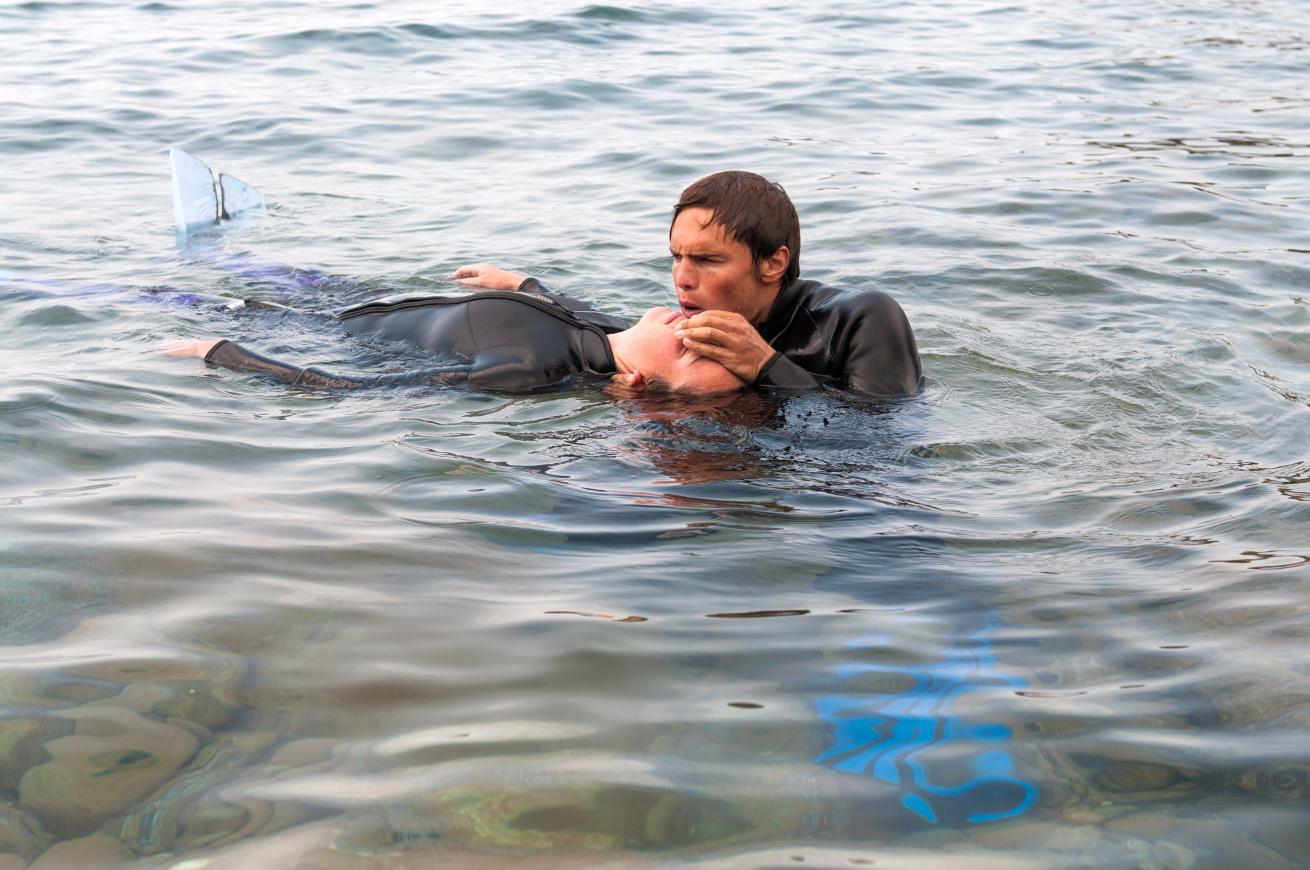
ShutterstockLessons for Life: Out of Practice, Out of Luck
The sport of diving is filled with rules. As in many other activities, the most important ones result from plain common sense. All too frequently, experienced divers allow knowledge and ego to overtake common sense. Take the case of Jill.
Jill was an open-water instructor who had taught dozens of students over her five-year diving career. When Jill discovered she was pregnant, she was overjoyed and readily accepted the fact that she would have to take some time off from diving. After having her baby, it was nearly two years before Jill decided to return to diving. On a cool Saturday in March, Jill went to a local dive site with a group of former students for a short diving excursion. Jill recognized that her lack of physical activity over the preceding months left her in poor physical condition. As an instructor, she should have realized that her water skills were rusty as well. In spite of these factors, Jill entered the gentle surf and cool waters for her first dive since giving birth.
The Dive Site
Located about 60 yards offshore in 60 feet of 58-degree water, the site included a rock ledge and a debris field on the bottom believed to be the site of an unnamed shipwreck. This site was popular with local divers thanks to the variety and quantity of marine life populating the rugged surface of the rock ledge. The site was also known for unpredictable currents that could sweep an unaware diver around the adjacent seawall if the tides were not monitored.
The Dive
Jill and her dive buddy, Angela, entered the water at high, slack tide. Angela noted that Jill was short of breath as they swam out to the float marking the dive site. Jill indicated that she was OK and just needed a few moments to hang onto the float and catch her breath. Several moments passed, and Jill indicated she was ready to dive. Twenty minutes into the planned one-hour dive, Angela noted that the gentle current was beginning to pick up and that a slight surge was apparent on the bottom. Remembering Jill's lack of stamina on the surface swim, Angela signaled Jill to see if she wanted to end the dive. Jill indicated that she was OK, and they continued down the ledge for another 10 minutes.
Thirty minutes into the dive, Angela became uncomfortable with the conditions and signaled that they should surface. As they ascended past 40 feet, Angela noticed that Jill's ascent rate was increasing. Soon, Jill was ascending uncontrollably toward the surface. The divers surfaced into a choppy sea with a rapidly increasing current pushing them toward the seawall. Jill's loss of buoyancy control and rapid ascent put her on the verge of panic, and she flailed about in an attempt to reach the beach. Jill's erratic and ineffective swimming led her quickly to exhaustion and then panic. Before Angela could respond, Jill ripped off her mask and began choking down seawater.
The Rescue
Angela immediately recognized the seriousness of the situation and used the audible signaling device attached to her BC to signal people on the shore for help. Two rescue divers from their group grabbed their snorkeling equipment and began the swim to assist in rescuing Jill. Unable to calm Jill, Angela swam up and dumped Jill's weights to help establish positive buoyancy. At some point, Jill stopped breathing. Angela and the two buddies from her group towed Jill to the beach, beginning mouth-to-mouth resuscitation while in the water. As they reached the surf zone, Jill began coughing and breathing on her own.
By the time the divers reached the beach, an ambulance, which had been summoned by another member of the group, was already standing by. Jill was rushed to the local hospital, where she was admitted for observation. She developed aspiration pneumonia as a result of inhaling seawater and had to be hospitalized. Fortunately, she made a full recovery.
Analysis
Jill allowed her considerable experience as a diving instructor to lull her into complacency. She assumed that her experience mitigated the necessity for a water skills review and proper conditioning for the dive planned. As an instructor, she knew better than to make these mistakes, but the lure of the water and returning to the social activities of diving caused her to place both her knowledge and common sense on hold. Fortunately, Jill had trained her students well and they were prepared to deal with the unexpected circumstances their instructor presented them with--this time for real. In this case, Jill, the instructor, became a student of Mother Nature and learned her lessons well. After starting an exercise routine and refreshing her skills, Jill is once again sharing her love of the ocean with student divers.
Lessons for Life
After periods of inactivity, all divers, regardless of experience, should complete refresher training in a controlled environment with a professional instructor.
Experience and knowledge do not preclude the need for good physical conditioning.
Any diver, regardless of experience, can find himself in a life-threatening situation.
Even divers diving with more experienced buddies should be prepared to respond to unexpected emergencies.
Emergency signaling equipment played a large part in saving Jill's life and should be considered basic diving equipment for every open-water diver.
Basic rescue skills training should be completed by every diver to ensure that they have the ability to deal with unexpected emergencies.

